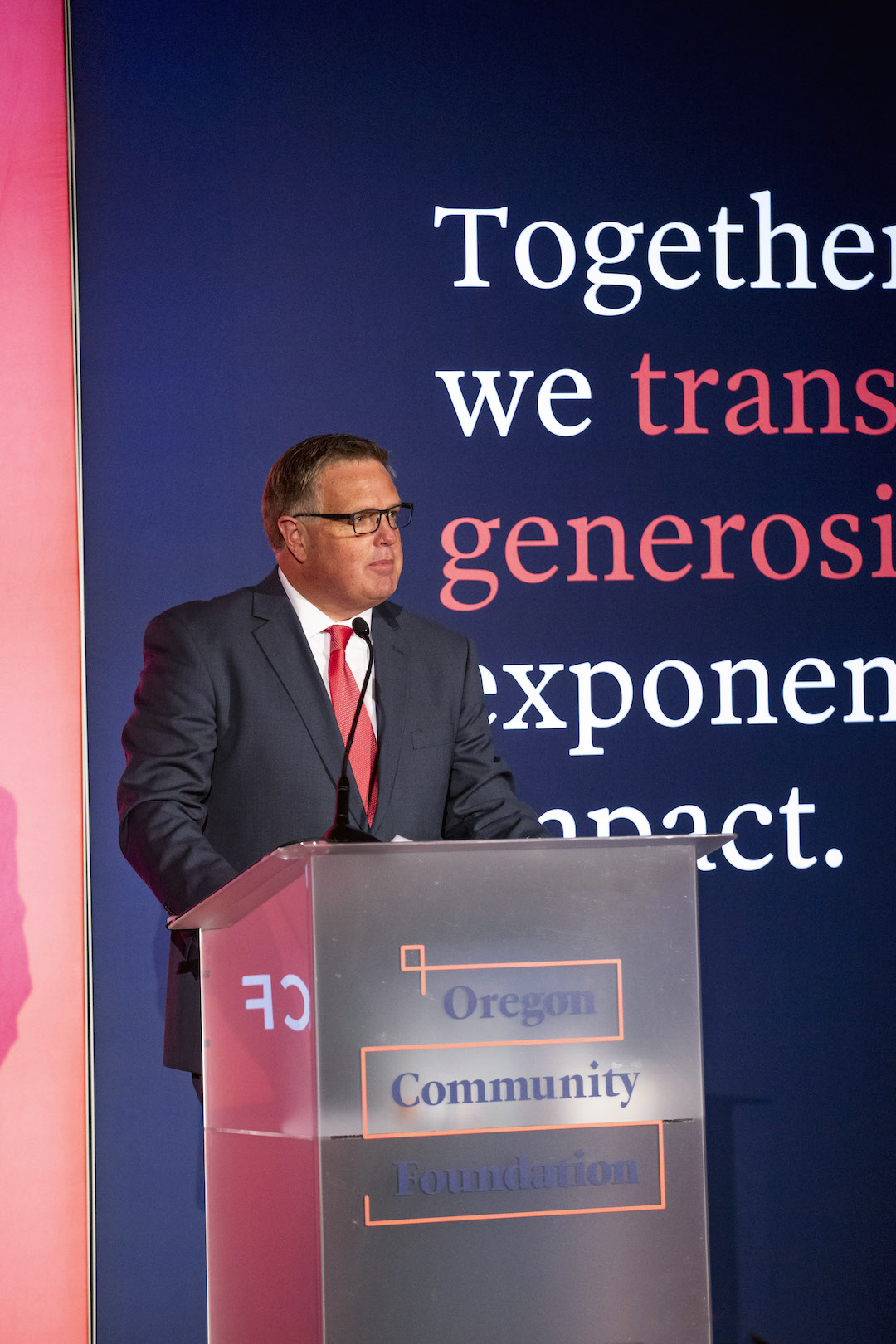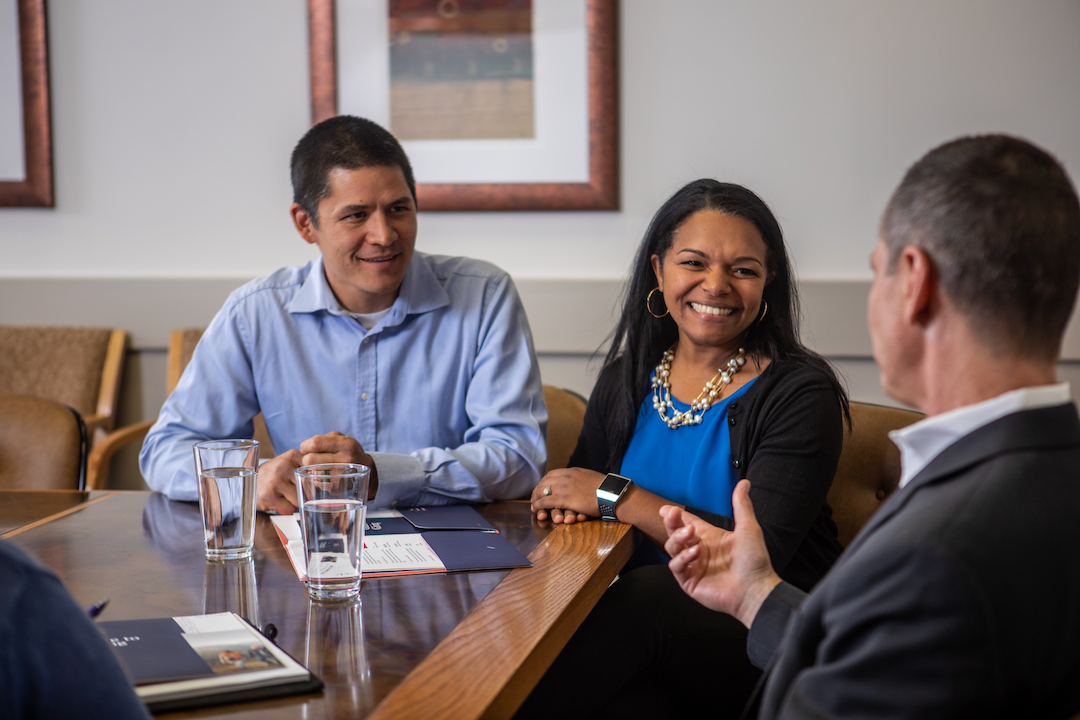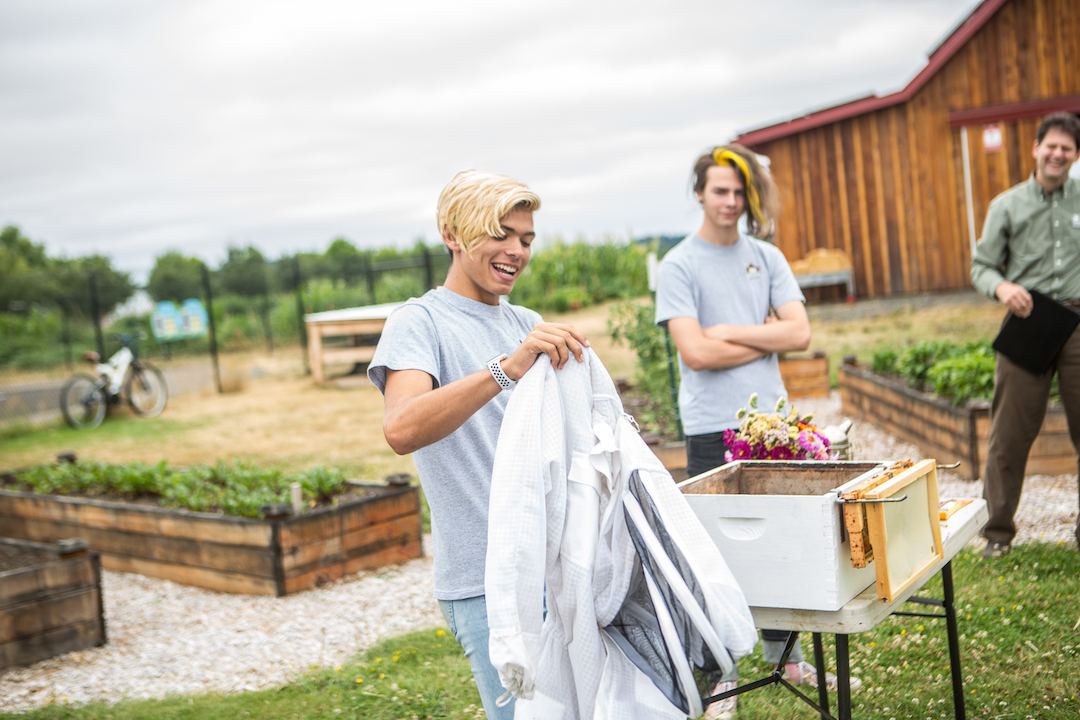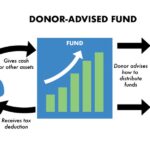Brand Story- Oregon Community Foundation’s expert research and local networks are key ingredients of community-focused giving.
You don’t have to live in Oregon long to know that our state is made up of a diverse tapestry of communities, and each of them face a unique set of challenges that impede their community’s vitality. Despit these unique challenges, what unites every community in Oregon is the need for more investments to drive real change in their region.
While state and federal support and investments are important, the best solutions will come from inside — not outside — local communities, championed by those who know them intimately. This is especially important in rural, low-income and communities of color, which all play a pivotal role in designing feasible and sustainable solutions.
In support of its mission to improve lives for all Oregonians, Oregon Community Foundation has developed a unique model to mobilize grant and volunteer resources, research and programming statewide, recognizing that no one community is alike.
The key to its strategy: “True effectiveness in philanthropy requires community-based collaborations guided by data-driven strategies,” says Max Williams, president and CEO of OCF.
 Max Williams, President and CEO, Oregon Community Foundation.
Max Williams, President and CEO, Oregon Community Foundation.
As the state’s largest public philanthropy, OCF works alongside public, private and nonprofit partners, leveraging these networks and their insight to convert donor contributions into long-lasting, positive change.
OCF’s unique model relies on community voices, knowledge and rigorous data collection in a manner that a singular nonprofit may not have the capacity, reach or resources to do.
“The magic of a community foundation derives from being a place-based model for delivery and support. We provide thoughtful counsel to individuals and businesses through a mechanism to engage philanthropy at a local level. It’s much more successful and transparent,” explains Williams. “And the secret to our success is deep relationships with communities.”
These relationships include a network of more than 1,700 volunteers, 2,000 nonprofits and eight leadership councils based across the state. Through ongoing dialogue and engagement of these vital community resources, OCF stays current and relevant on communities’ most pressing challenges, from the opportunity gaps facing underserved children to affordable housing to education reform.
The result: OCF’s donors gain comprehensive and deep knowledge of their community’s priorities, and can tap a proven network to make lasting, local impact.
 OCF donors discuss their giving goals.
OCF donors discuss their giving goals.
“In an era of divides — urban/rural, political, economic and social — OCF recognizes the power of bringing likeminded donors together with a common vision to improve the lives of all Oregonians,” says Williams. “OCF was organized in 1973 by a group of donors who saw philanthropy as a way to knit together separate parts of the state to make a greater impact for all. We serve all Oregonians and look carefully at equitable and inclusive grant distribution,” he says. “We reach every corner of the state every year in a variety of ways.”
This includes advice on giving strategies, access to a network of vetted nonprofits, donor convenings, research and advocacy on shared initiatives, and community-based solutions.
Data guides giving, drives impact
OCF’s commitment to research rivals that of a university. A growing, in-house library of high-quality studies informs donor decisions and offers important insights for government-level actions and policy. Donors value, and often actively fund, initial research, allowing OCF to provide data-driven advice and accurate impact measurements.
“We want to improve the lives of all Oregonians through philanthropy, and we really believe that data matters in supporting and implementing strategies,” Williams says.
For example, when one donor asked the research team for information on the state of libraries in Oregon, they discovered that the topic had not been broached in 30 years. The donor authorized and funded a study that revealed that the state’s libraries had the highest usage and lowest public funding rates in the nation. The findings, which were broadly shared with the Oregon Legislature, the public and nonprofits, led to the launch of an OCF library innovation fund. That fund has so far contributed nearly $200,000 to support libraries through capital improvements, programming, materials and services.
A growing body of OCF research examines Oregon’s ‘opportunity gap’ — the increasing inequities in access to education, health care, services and jobs, particularly for Oregon children born into poverty and children of color. In this way, OCF research helps direct and scale community-based actions, advocacy and grant making. The foundation’s transparent, communal approach and focus on equity in research and evaluation are shared with the public and relevant leaders in the hopes of paving a strategic approach to systemic change.
As an apolitical organization that solely aims to improve the lives of Oregonians through the power of philanthropy, the foundation is uniquely equipped to help the state tackle leading challenges, such as housing affordability or rural economic development.
 OCF Board Members and staff visit Bethel Farms.
OCF Board Members and staff visit Bethel Farms.
“We connect generous people and businesses with causes in their community with the goal of delivering impact. But more broadly, we’re a platform connecting donors to a broad set of philanthropic needs,” Williams says.
Donors have flexibility in how they give
Aside from setting up and managing giving strategies, OCF holds and invests donors’ assets until they are ready to select a cause and strategy. For example, if for tax reasons they need to make a large gift immediately but are not ready to commit to a cause, they can create a fund at the community foundation (thereby technically donating it) and then take their time in determining a thoughtful approach.
In the meantime, the principal continues to grow, sometimes resulting in grants that are greater than the original gift.
OCF is uniquely suited to support businesses and entrepreneurs who want their giving to build Oregon’s economy. OCF ‘impact investments’ support nonprofit organizations, for-profit companies and funds with the intention of generating social impact as well as financial return. OCF’s impact loans are made through the Oregon Impact Fund, a $20 million endowment established to provide low-interest debt financing for nonprofits and social ventures. To date, OCF has issued $12 million in economic vitality loans to organizations across our state.
A philanthropic one-stop-shop, the foundation structures the terms of each endowment and menu of services to reflect the needs of each individual, leveraging its insight and network at every step. By introducing donors to other like-minded philanthropists, connecting them with relevant nonprofits, developing research or organizing information sessions, OCF guides clients along their journey of achieving their personal giving strategy.
“One of the great things about community philanthropy is the breadth of givers from all parts of the state — generous Oregonians who understand that one person, together with many, can have a greater impact,” Williams says. “OCF began in 1973 with a $63,000 donor gift. Forty five years later the endowment has grown to $2.3 billion dollars and we have granted more than $1 billion to support all Oregonians. That’s the power of community philanthropy.”
Brand stories are paid content articles that allow Oregon Business advertisers to share news about their organizations and engage with readers on business and public policy issues. The stories are produced in house by the Oregon Business marketing department. For more information, contact associate publisher Courtney Kutzman.



